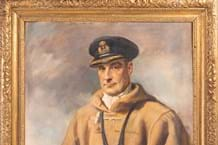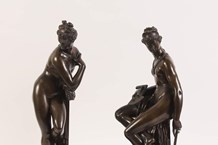The primary purpose of the scholars skilled in Irish and other languages who were gathered together in Louvain was to train priests for Irish and Scottish missions, but they had acquired their own press as early as 1611 and even after it ceased operations, they employed commercial publishers to publish literary works for a wider Irish audience.
In the original binding of dark limp
vellum, now cockled, shrunk and splitting the upper hinge, this copy brought a bid of $15,000 (£8700) as part of the H.P. Kraus Inventory sale held by Sotheby’s New York on December 4-5.
Sold for £58,000 at Sotheby’s on December 11 was a newly discovered and thus previously unrecorded copy of the Proclamation of Independence printed at Liberty hall, Dublin, on Easter Sunday , 1916. It is one of perhaps 20 surviving copies of a document that marked the beginning of the Easter Rising and the modern period of Irish history – leading on to the founding of the Irish Free State and later the Republic of Ireland.
It had been intended to produce 2500 copies of what is undoubtedly one of the most important documents in the history of the Irish nation, but in the event a shortage of paper meant that only a thousand so were printed and of these, the vast majority were destroyed in the storming of Liberty Hall and during the chaotic events that were taking place at the time in the surrounding streets.
In a December 16 sale held by Bonhams, a collection of official accounts relating to the provisioning of the English army that Elizabeth I sent to Ireland in the last years of her reign failed to sell against an estimate of £20,000-30,000.
Irish firsts: the word is heard and a “a terrible beauty is born”
The title page of Hugh Maccaghwell’s On the Sacrament of Penance which, printed at Louvain in 1618, is recognised as “the first original work by a living author in Irish”. The few works printed in Irish that preceded it were the Bible, liturgical texts or translations of the works of others, but this was one of five works produced in the years 1614-18 at a press operated by the Irish Franciscans at St. Anthony’s in Louvain – the first press to print and promote Irish writing in the vernacular.




